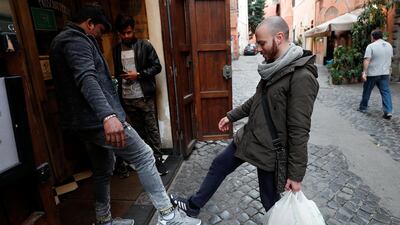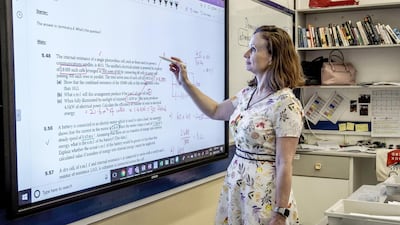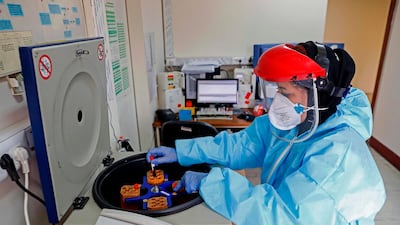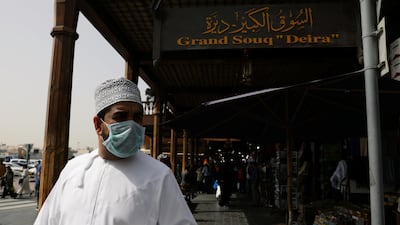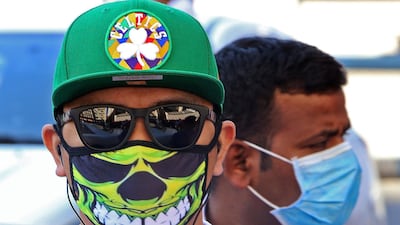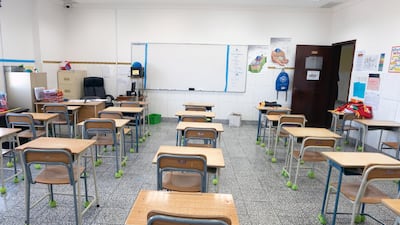At times like these, I find that the old saying "keep calm and carry on" can really be a good way of dealing with things. That does not mean that I advocate the adoption of an ostrich-like approach of sticking one’s head in the sand. Instead, I try to make a reasoned assessment of prevailing circumstances and the associated risks, listening to advice from the well-informed and then operating on that basis.
That seems to be a sensible way to behave, here in the UAE at least, as the coronavirus disease continues to spread.
In my years in the UAE, I have been an interested observer of a wide range of events and crises, both with international dimensions and with regional implications. Revolutions, wars, tsunamis and – yes – viruses have come and gone. Some have had a direct impact on the Emirates, while others, fortunately, have passed us by.
Thanks to the rapid development of global communications, through the internet and social media and mobile telephones, the dissemination of news – and of fake news – reaches far more people, far quicker, than used to be the case. That, in turn, means that worries and panic can spread much more quickly.
Looking back, though, I recall several occasions when something verging on panic gripped a section of the population, but was unnecessary. Perhaps there are lessons to be learnt that are of value as Covid-19 spreads.
When Iraq invaded Kuwait nearly 30 years ago and thousands of Kuwaitis arrived fleeing the violence, there were fears that the conflict on the ground would reach here or that Iraqi planes would be able to attack UAE targets. Families were evacuated, some foreign banks shuttered their doors and stockpiling of household goods – even drinking water – took place.
Yet if one bothered to look at a map and do a bit of research, it was obvious that the UAE was too far removed from the conflict zone to be at direct risk. The government adopted a calm and measured response, quietly making preparations for all eventualities, and the fears subsided.
A decade later, with the approach of New Year 2000, there was nervousness that the "Y2K" virus would somehow lead to a collapse in local and global computer systems. Among many computer users, a near-panic set in. In the event, as most IT specialists had said, the day passed with nary a blip.
A few years later, in 2002-2003, there was an outbreak of disease directly comparable to Covid-19 – the Sars coronavirus – with a total of a little more than 8,000 cases being reported, mainly in China and Hong Kong, but with scattered cases in every continent except South America. The 9.6 per cent fatality rate, one should note, was very much higher than for Covid-19.
Once again, many people in the UAE became concerned about the possibility of it reaching the Emirates. I remember many conversations about Sars that are similar to those one hears now. In the event, though, perhaps partly as a result of a coherent and transparent approach by the government to inform people about the dos and donts, which included most of the steps for self-protection being advised today, no cases of Sars were identified in the UAE. None have been detected anywhere in the world since 2004.
Of course, it is reasonable to be worried about Covid-19. With reported cases worldwide already more than 115,000 mainly in China but also now present in over 100 countries, the virus is clearly the most significant new illness to threaten human health for decades. While official figures suggest that its spread might now be under control in China, cases elsewhere are rising. However, over half of these cases have recovered.
Responding to the crisis poses great challenges for many governments. Tough decisions need to be taken – such as those here in the UAE like the closure of schools and universities, the cancellation of major events and advising people not to travel unless it is essential. It is right to do that.
Where, however, there is an effective healthcare system and where governments adopt a policy of releasing information, giving advice and being transparent about the nature of the threat, that should go a long way towards allaying public concerns.
The UAE’s health and crisis management authorities have already done much to counteract the toxic melange of gossip, rumours and conspiracy theories that spill out from social media to affect, and to infect, the population at large.
The Covid-19 virus presents a bigger threat to the UAE, and to the world as a whole, than any of the other topics I mentioned earlier. It will continue to spread, both here and elsewhere. The advice that served us well in the past, though, remains valid. Rely upon trusted sources of information and on science, not ill-informed speculation or crazy conspiracy theories. Take sensible precautions and make appropriate changes to your lifestyle. Worrying about impending doom will not help. Nor is there any need to engage in panic-buying of household items.
In essence, keep calm and carry on.
Peter Hellyer is a consultant specialising in the UAE's history and culture
